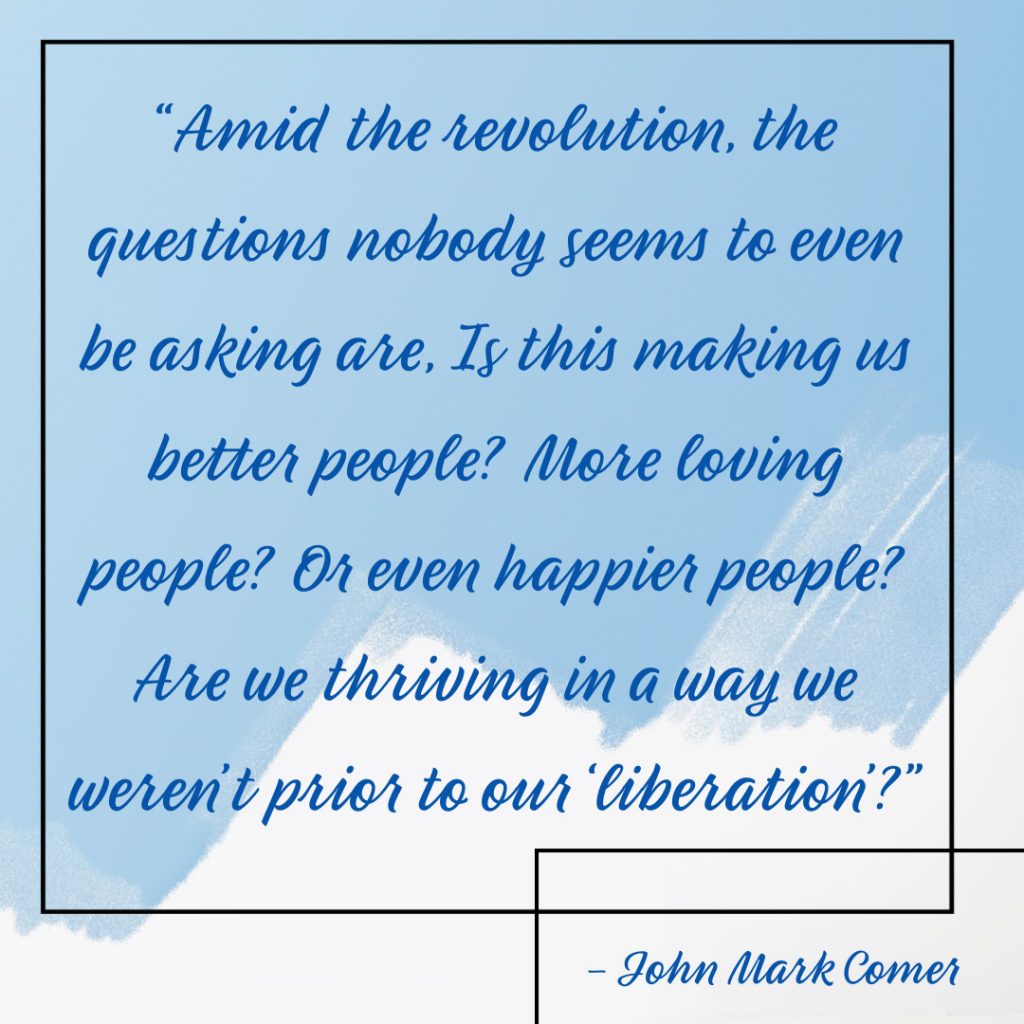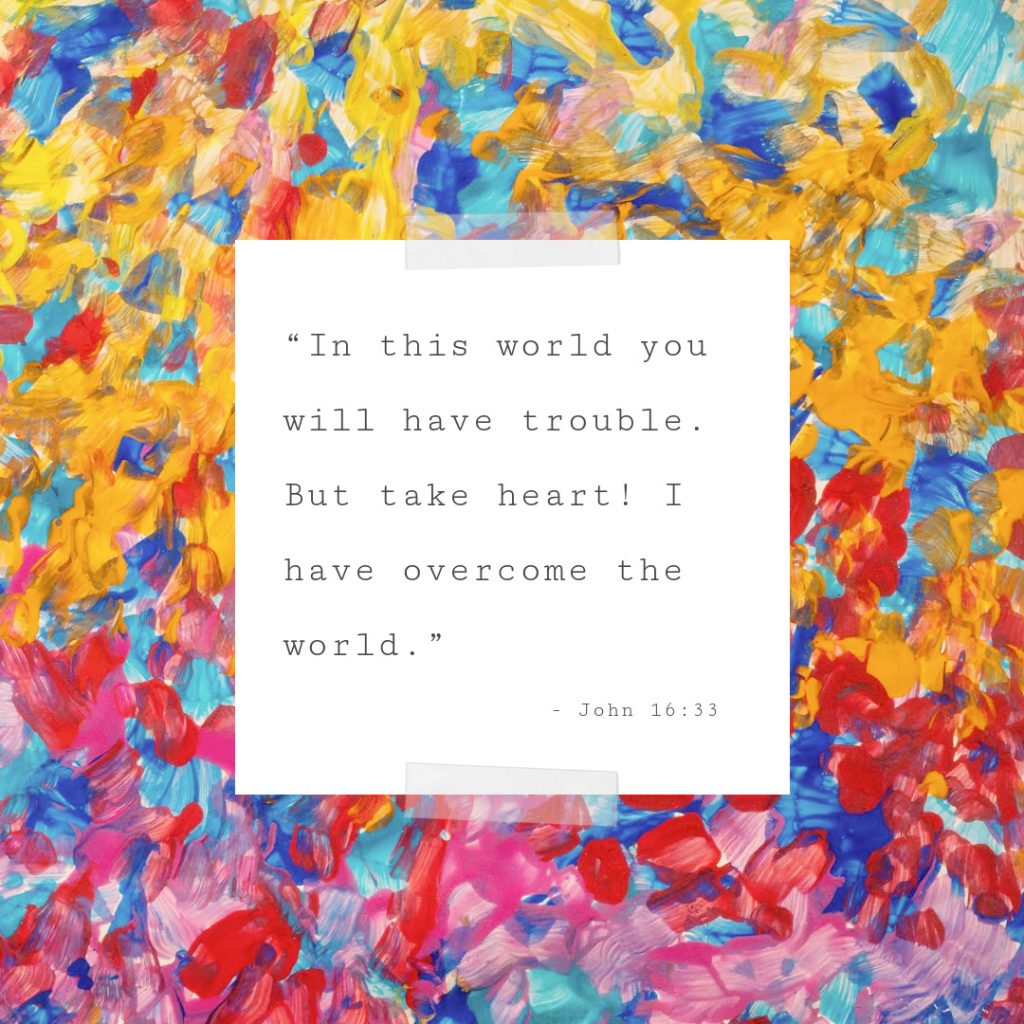You know you’re getting old when half of your thoughts and conversations begin with the phrase, “well, when I was a kid. . . ” That’s been me lately. Luke, too. Though we’ve not yet reached our fortieth birthdays, we can’t stop pontificating over how much has changed in our relatively brief stints on the planet. There have been technological advancements (we have access to ALL THE INFORMATION FROM OUR WATCHES!); shifting attitudes about raising children (our kids will never know the freedom of riding in the front seat sans boosters); new methods of education (you can go to college from your home office); emerging forms of entertainment (no commercials?!); and new ways of doing relationships (we interact with dozens or hundreds of people before leaving the house each day, but we don’t know our neighbors).
Perhaps most significantly, in the years since our own childhoods our nation has witnessed massive cultural and political shifts (men and women can get married. . . and even swap genders; church is considered old-fashioned; and truth—let alone morality—is no longer an objective and accepted reality). The world we are raising our children in would have been unrecognizable to us just twenty or thirty years ago.
Some of these changes are great, some undeniably less so, but there is no doubt that, for better and for worse, the landscape has changed. This world is not my grandparents’ (or parents’ or even my) world. And like the frog in the proverbial boiling pot, we’ve acclimated to our environment without resistance or even awareness. We have adopted new lifestyles, new habits, new views, new beliefs and identities without ever pausing to ask if these newer ways were in the best interests of our families, our communities, our world, or our souls. These were not realities to be questioned; they must simply be accepted. And it’s hard NOT to accept the convenience of overnight shipping, the instant gratification of a Google search, or the potential to peek into strangers’ homes and lives via candid Instagram shots. Why look back, why evaluate, when this all just feels so simple?

As I’ve been reflecting how different my kids’ childhood is turning out to be from my own (despite us all being raised by like-minded, middle class, Christian parents in the suburbs), I have started to ask myself: what aspects of the world from MY youth do I wish my kids could experience today? And to extrapolate that concept a bit: what aspects of twenty or thirty years ago am I missing for myself? When and where and how do I wish I could wind back the clock?
Clearly time travel isn’t in the cards for me, but I’m glad to be asking these questions. Because while some elements of my contemporary lifestyle are inexorable, it all warrants some thoughtful examination. The main question I am asking is: what aspects of this world and this life reflect God’s intended design? Where am I (or, more broadly, we as a culture) living wildly outside of how we were made to be? And is there a way to ease back into habits and lifestyles that are more reflective of God’s original intentions for human flourishing?
These are huge questions that can be taken in a million directions: schedule, diet, transportation, political involvement, material consumption, schooling, work, movement, rest, finances, health care, family roles, friendship housing, leisure, world view—these are just a few of the lifestyle aspects that deserve to be filtered through the lens of “What would God say is best?” Scripture speaks directly to many of these areas, but is silent or vague in others. Where does that leave us?

In the book The One Hundred Years of Lenni and Margot, seventeen-year-old Lenni observes, “It’s odd that [Jesus] didn’t tell the folk in Jerusalem about cars—you know, give them a heads-up of what’s to come. Give them a clue that would lead to the invention of the motor car. Help them get there quicker.” And her friend, a priest, is quick to respond: “How do you know he didn’t?” I love this! Just imagine Jesus, chuckling over the campfire with his disciples as He told them of the wild inventions to come, but warning them to keep silent: “I’ll tell you this,” He might have whispered, “but it’s for your ears only! No writing it down in those journals of yours. We wouldn’t want to spoil the surprise.” Ha!
I’ve often wondered why Jesus said what He did and why He chose NOT to say so much. If it’s true that Jesus, as God, was aware of all that was to come for humanity (which I believe He was), why didn’t He address the future? The truth is that Jesus spoke every word that needed to be spoken in His time on earth. His life was complete. And the Book that records His life and words, and the words of His Father, is also complete. Scripture, combined with the whisperings of the Holy Spirit and the wisdom of Godly community and the truths hidden in Creation, are all we need to make decisions. We have access to every point of information required to conceptualize and potentially embrace the life God designed for us.
Which leads me back to where I began. This world that seems so foreign to me is not one I need to navigate alone. The Lord God is walking beside me. He is the constant who was in the beginning, is here now, and will be to come. I do not have all of the answers, but I know the One who does and trust He will make them known to me as I lean into Him and His infinite wisdom and truth.

As I hold each habit, each viewpoint, each lifestyle choice up to His light, I invite Him to illuminate all that is good and beautiful and help me to set aside that which is not beneficial. I have a feeling some of His answers may surprise me, and could result in shifts that are countercultural and uncomfortable and antithetical to modern ways of living, doing, and being. Some may be old-fashioned, some might be more progressive and revolutionary than I could have imagined. I pray He will help me capture some of His Kingdom perspectives here on earth, while tugging at my heartstrings of longing for the Kingdom that is to come. Lord, thy will be done—on earth, and in your children, as it is in Heaven.